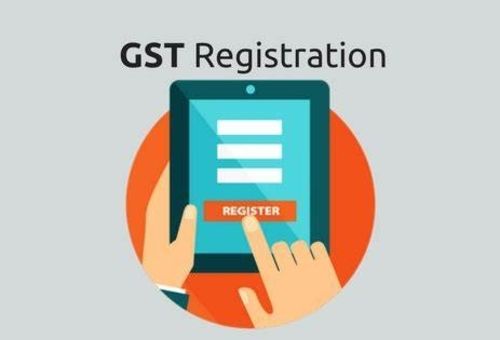Compare and Choose the Best GST Registration Services in Singapore for Your Demands
Compare and Choose the Best GST Registration Services in Singapore for Your Demands
Blog Article
Throughout: The Ultimate Roadmap to GST Registration for Businesses Looking For Financial Security
Browsing the intricacies of Item and Services Tax Obligation (GST) registration is a vital action for businesses striving for economic security. Breaking down the roadmap into convenient steps can enhance the enrollment journey for companies looking to boost their monetary standing.
Understanding GST Essentials
Exploring the fundamental concepts of Goods and Solutions Tax (GST) is necessary for acquiring a detailed understanding of its effects on businesses and the economy. GST is a value-added tax obligation imposed on a lot of products and services for residential consumption. It has replaced several indirect tax obligations that existed in the pre-GST era, improving the tax obligation structure and improving simplicity of doing organization in India. Under the GST system, both items and services are taxed at a certain price, which is identified based on their classification. Services are called for to sign up for GST if their yearly turnover goes beyond the threshold restriction established by the federal government. Input Tax Credit (ITC) is a substantial attribute of GST, enabling businesses to assert debt for tax obligations paid on inputs, minimizing the general tax worry. Understanding the basics of GST is vital for companies to adhere to tax regulations, manage their funds effectively, and add to the nation's economic development by joining a transparent tax obligation system.
Qualification Criteria for Enrollment
To register for GST, businesses must satisfy specific qualification criteria established by the government. The primary qualification need is that any kind of service included in the supply of goods or services with a yearly accumulation turnover over the threshold limitation set by the authorities need to register for GST. As of the current guidelines, the threshold restriction for GST enrollment is a yearly accumulation turn over of 40 lakhs for companies operating within a state, except for special group states where the limitation is 20 lakhs. Furthermore, certain companies are needed to sign up for GST regardless of their turn over, such as interstate vendors, informal taxed individuals, and businesses reliant pay tax obligation under the reverse charge device. It is critical for services to completely examine their turnover and purchase kinds to determine their GST enrollment commitments precisely. Failing to sign up for GST when eligible can bring about penalties and lawful effects, making it essential for organizations to stick to the specified qualification standards.
Records Needed for Enrollment
Having actually fulfilled the qualification criteria for GST registration, companies must currently ensure they have the requisite papers in location to proceed with the enrollment process successfully. The files needed for GST registration typically include proof of service constitution, such as collaboration action, enrollment certification, or consolidation certificate for different types of companies. In addition, businesses require to provide files establishing the primary area of company, such as a rental agreement or electrical power bill.
Step-by-Step Enrollment Process
Beginning the GST enrollment procedure go now includes a collection of structured steps to make certain a compliant and seamless enrollment for businesses. The initial step is to visit the my site GST portal and fill in the enrollment form with exact information of the business entity. Following this, the candidate gets a Temporary Recommendation Number (TRN) which is made use of to resume the application procedure if it's not completed in one go.
Following, all required papers based on the list offered by the GST portal requirement to be published. These files generally include proof of business enrollment, identification and address proofs of promoters, financial statements, and business entity's PAN card.

Post-Registration Conformity Guidelines

Verdict
To conclude, companies seeking economic security must recognize the essentials of GST, meet eligibility criteria, gather essential records, adhere to the detailed enrollment process, and abide by post-registration standards - Best GST registration services in Singapore. By adhering to these steps, companies can ensure compliance with tax obligation regulations and preserve economic stability over time
Furthermore, particular organizations are called for to sign up for GST irrespective of their turn over, such as interstate distributors, casual taxed persons, and businesses responsible to pay tax under the reverse cost system.Having actually satisfied the eligibility requirements for GST registration, organizations have to currently ensure they have the requisite files in place to proceed with the registration procedure effectively. The papers required for GST registration generally include proof of company constitution, such as partnership action, enrollment certificate, or unification certificate for various types of organizations. Additionally, businesses require to supply files establishing the primary area of service, such as a rental agreement or electrical energy expense.Beginning the GST registration process involves a series of organized steps to make sure a compliant and smooth registration for organizations.
Report this page